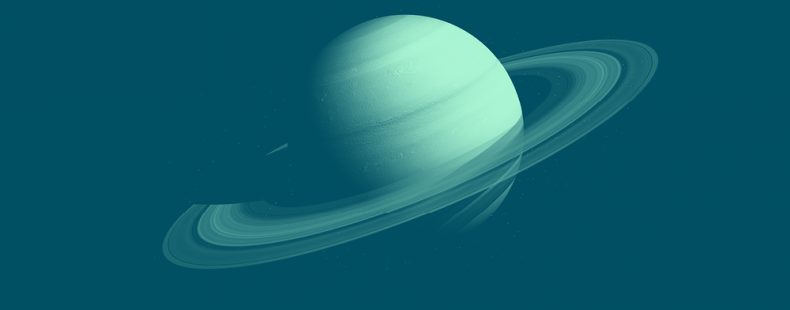As the first full day of the weekend in the standard Western work week, Saturday means different things to different people. Freedom from school or work, for some, and the perfect day for parties for others. And then there are those who take the day to do absolutely nothing and not feel guilty about it.
Though you’re probably already familiar with the vibes that come along with the day, do you know the planet that Saturday is named after?
While Sunday and Monday get their names from the sun and moon, Tuesday through Friday are named for Germanic or Norse gods. Saturday, on the other hand, is designated as the day of the Roman planet Sāturnus, named after the god Saturn, who is equal parts party animal and agricultural icon.
How Saturday got its name
The word Saturday can be traced back to the Latin Sāturnī diēs (literally “Saturn’s day”). That led to the Old English pronunciation and spelling Saternesdæg, followed by the Middle English Saturdai before English speakers settled on Saturday.
To get to the origin of the name for Saturday (or any day of the week, for that matter), you have to start with the Babylonians. They were the ones who created the seven-day week that people still use today. When the ancient Romans followed suit, they named the days after their planets, the sun, and the moon (so named after the gods).
Those who spoke the Germanic and Nordic languages that shaped English subsequently replaced the Roman names with their own—Thursday, for example, gets its Latin name from Jūpiter, the god of thunder and the sky, and its English name from Thor, the Norse god of thunder.
This is true for all but Saturday. The Romans named it after Saturn, and for Saturn it stayed. The consistency in naming reflects the lasting Roman influence on English from the period when the Romans controlled the British Isles from 55 BCE to 410 CE.
What is Saturnalia?
The connection between the Roman god, Saturn, and Saturday is a fitting one. In addition to agriculture, Saturn is associated with fertility, strength, wealth, feasts, and abundance. The god fits nicely with the festivities that often take place on his day, though Saturn’s ancient holiday, Saturnalia, arguably fits the bill even better: Saturnalia was “the festival of Saturn, celebrated in December in ancient Rome as a time of unrestrained merrymaking.”
Modern Saturnalia festivals may be few and far between, but Saturday remains a small reminder of Saturn’s merrymaking once a week.
WATCH: Where Did The Days Of The Week Get Their Names?














